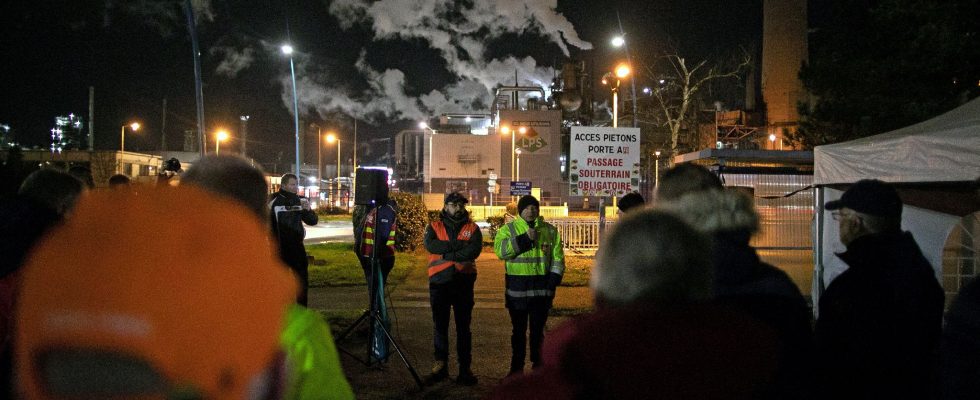How far will the “blocking of the country” go against the pension reform? In anticipation of the national strike movement on Tuesday, some motorists had filled up. A salutary gesture for some. This Wednesday, March 8, nearly 6% of service stations in France were out of petrol or diesel, according to fuel-prices.gouv.fr.
The West is more affected than the national average, with around a quarter of the stations of Sarthe, Indre-et-Loire and Calvados lacking either petrol or diesel. What to fear a shortage, while the mobilization against the pension reform continues?
Not so completely. In reality, these shortages would come especially for the moment… from the influx of motorists anxious at the idea of finding themselves dry, according to the oil sector. If no more fuel comes out of French refineries, on strike, 200 depots continue to supply the stations.
A “runaway” of motorists
This lack of fuel in stations is exclusively due to a “runaway” of motorists who have multiplied their precautionary fill-ups since Friday and “caused oversales of 10 to 30%”, told AFP Francis Pousse, president of the professional union Mobilians. representing 5,800 stations out of the approximately 10,000 in France.
“Some stations had anticipated by stocking up before the crisis. But in some outlets, we had sales increases of 50%. So, inevitably, there is a given moment when there is a break because we don’t don’t put as many trucks as you want on the road to re-deliver the stations,” he explains.
“The flow of sales is above normal due to concerns,” he said. The rush for the pumps was reinforced by the operation of the Leclerc brand offering fuel at cost price and whose stations were “very busy during the weekend”, according to him. The lack of fuel in the stations is very marked in three regions: “Ile-de-France, Normandy and Pays de la Loire where 15% of the stations lacked product on Tuesday evening”, he said.
The Minister of Transport puts pressure
Still, for the moment, the shortage is still far away. “As of today, there is plenty of fuel on national territory” and “service stations continue to be delivered normally”. Even if one of the 200 depots is blocked, “we have enough agility to get fuel elsewhere even if it takes longer”, he added, while saying he was unable to decide for the rest: “Everything will depend on whether the strike continues or not, whether it intensifies or not.”
The government will involve the police in the event of “real blockages” of refineries, warned Wednesday the Minister Delegate for Transport Clément Beaune, “We must not brandish things before the situation exists but everyone knows , we showed it in October, particularly in the refineries, that we will not let the most essential economic life of the country be at a standstill”, insisted the minister.
The effect of blockages? In several days
40% of stations were running out of fuel on average at the height of the refinery strike at TotalEnergies and Esso-ExxonMobil in October, with shortages that were even more severe in some areas. “We are not in this situation, but we cannot imagine that our refineries will not operate in the long term, so we have all the legal tools to intervene, if necessary”, added the minister, recalling that “the strike is a right, blocking is not one”.
The CGT-Chimie had said a little earlier that fuel shipments were still blocked this Wednesday morning at the exit of refineries. The refineries themselves continue to produce fuel: gasoline and diesel which will have to be stored on site until further notice, for lack of being able to leave. When the reserves on site are full, the refineries will have to stop, but this would require several days or even weeks of blockage.
